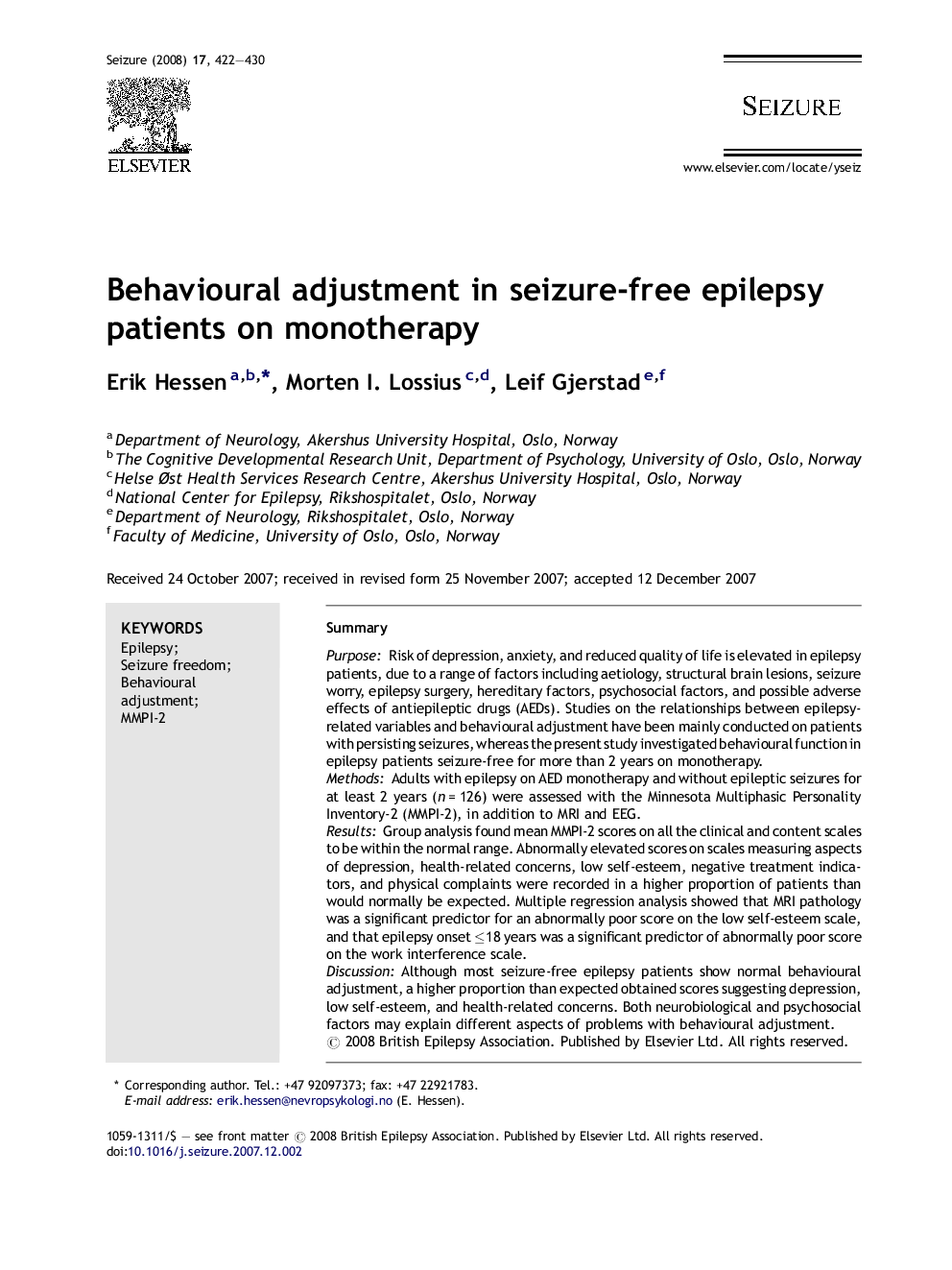| Article ID | Journal | Published Year | Pages | File Type |
|---|---|---|---|---|
| 342450 | Seizure | 2008 | 9 Pages |
SummaryPurposeRisk of depression, anxiety, and reduced quality of life is elevated in epilepsy patients, due to a range of factors including aetiology, structural brain lesions, seizure worry, epilepsy surgery, hereditary factors, psychosocial factors, and possible adverse effects of antiepileptic drugs (AEDs). Studies on the relationships between epilepsy-related variables and behavioural adjustment have been mainly conducted on patients with persisting seizures, whereas the present study investigated behavioural function in epilepsy patients seizure-free for more than 2 years on monotherapy.MethodsAdults with epilepsy on AED monotherapy and without epileptic seizures for at least 2 years (n = 126) were assessed with the Minnesota Multiphasic Personality Inventory-2 (MMPI-2), in addition to MRI and EEG.ResultsGroup analysis found mean MMPI-2 scores on all the clinical and content scales to be within the normal range. Abnormally elevated scores on scales measuring aspects of depression, health-related concerns, low self-esteem, negative treatment indicators, and physical complaints were recorded in a higher proportion of patients than would normally be expected. Multiple regression analysis showed that MRI pathology was a significant predictor for an abnormally poor score on the low self-esteem scale, and that epilepsy onset ≤18 years was a significant predictor of abnormally poor score on the work interference scale.DiscussionAlthough most seizure-free epilepsy patients show normal behavioural adjustment, a higher proportion than expected obtained scores suggesting depression, low self-esteem, and health-related concerns. Both neurobiological and psychosocial factors may explain different aspects of problems with behavioural adjustment.
